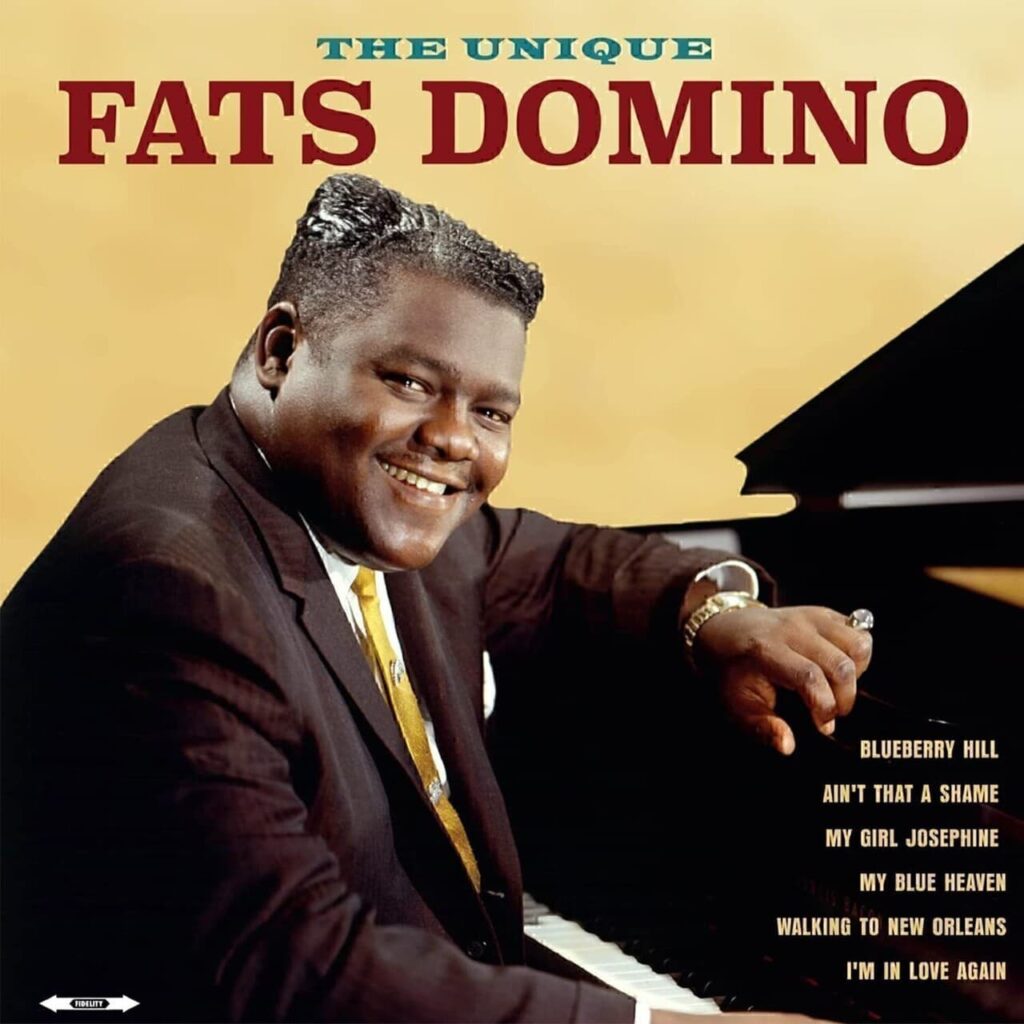
The Song That Opened Rock ’n’ Roll’s Heart: Fats Domino and the Enduring Power of Ain’t That a Shame
When Fats Domino released “Ain’t That a Shame” in 1955, he did more than give the world a catchy tune—he helped ignite the fire of rock ’n’ roll. The song, co-written with long-time collaborator Dave Bartholomew, soared up the charts, reaching No. 1 on the Billboard R&B chart and crossing over to the Billboard Hot 100, where it peaked at No. 10. For many listeners at the time, particularly in a still-segregated America, this was the first taste of Domino’s rolling piano lines and warm, unmistakable voice. And for older fans who remember those days, the song still carries that glow of discovery, that thrill of hearing something new—something that would change music forever.
At its heart, “Ain’t That a Shame” is a song of heartbreak, pure and simple. Domino sings of the pain of rejection with a voice that is at once plaintive and resilient. The lyrics—“You made me cry, when you said goodbye”—may seem simple on the surface, but simplicity is often where the greatest truths lie. What makes the song unforgettable is how Domino’s delivery takes those words and turns them into a universal cry of loss. His tone isn’t bitter; it’s tender, resigned, almost conversational, as though he’s sharing his sorrow with a friend on the front porch at dusk.
The recording itself was groundbreaking. That steady backbeat, those rolling piano chords, the effortless blend of rhythm and blues with a dash of New Orleans swagger—it was the blueprint for the sound that would soon sweep the nation. It’s no coincidence that Pat Boone’s cover version, released the same year, became a massive pop hit with white audiences, climbing all the way to No. 1 on the Billboard charts. But while Boone’s version may have sold more records at the time, it was Domino’s original that carried the soul, the ache, and the authenticity. Even today, Boone’s cover feels like a cultural artifact, while Domino’s version still feels alive.
For those who grew up with the radio pressed to their ear in the mid-1950s, “Ain’t That a Shame” was more than just a song—it was a door opening to a new sound and a new world. It marked the moment when rhythm and blues crossed into mainstream America, paving the way for Elvis Presley, Little Richard, and countless others. And yet, despite its historical weight, the song never feels heavy. Instead, it feels like life itself: joy and sorrow intertwined, love gained and lost, and the resilience to keep moving forward.
Nearly seven decades later, Fats Domino’s “Ain’t That a Shame” still resonates with that same bittersweet power. It is a reminder not only of a man who helped shape modern music, but also of the universal ache of love slipping away. For older listeners who lived through its first wave, the song is a time capsule of youth, innocence, and a world on the brink of musical revolution. For younger ears, it remains a lesson in how sometimes the simplest words, sung with the truest heart, can echo across generations.